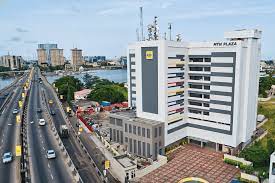
By David Akinmola
To tackle rising food inflation, the Chief Executive Officer, Centre for the Promotion of Private Enterprise (CPPE), Dr. Muda Yusuf, has called on the Federal Government to tweak tariff policies by granting concessionary import duty on intermediate products for industrialists, especially those in the food processing segments of the agriculture value chain.
Yusuf, who said this following the National Bureau of Statistics (NBS) October report on food inflation, said granting concessions would give producers and citizens some relief.
According to him, tackling inflation requires urgent government intervention to address the challenges bedeviling the supply side of the economy vis-a-vis addressing production and productivity constraints; fixing the dysfunctional forex policy, and institution of fiscal reforms to curb escalating deficit spending.
He said the accelerated growth in fiscal deficit financing by the Central Bank of Nigeria (CBN) was heightening liquidity in the economy with consequences for soaring inflation.
Noting that mounting inflationary pressures have the following consequences for the economy weakening of purchasing power of citizens as real incomes are eroded.
He said it would lead to increased poverty incidence, escalation of production costs which negatively impacts profitability, erosion of shareholder value in many businesses, weakening of investors’ confidence, and would lead to declines in manufacturing capacity utilisation.
Food inflation maintained its upward trajectory, accelerating to 23.72 with a month-on-month decline of 0.21 percent. Core inflation similarly spiraled to 17.76 per cent in October.
“We are yet to see an abatement to the key factors fueling inflation. Some of these factors are global, while others are domestic. They are a combination of structural and policy issues, which include the depreciating exchange rate, rising transportation costs, logistics challenges, forex market illiquidity, hike in diesel cost, climate change, insecurity in many farming communities and structural bottlenecks to production.
“These are largely supply-side and policy concerns. Monetary policy tightening in most economies around the world, especially the leading economies, is also driving imported inflation and the depreciation in the exchange rate,” he said.





